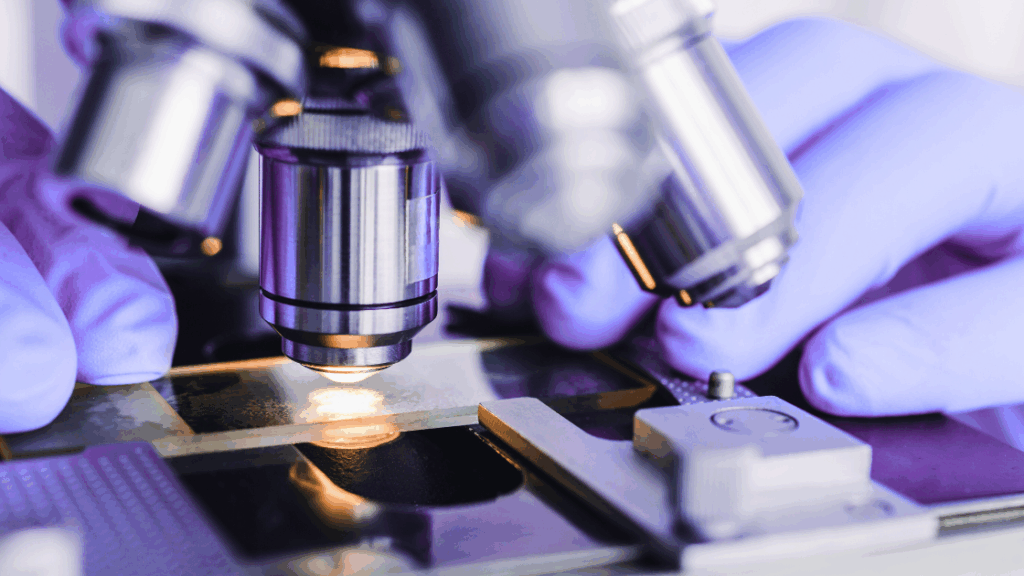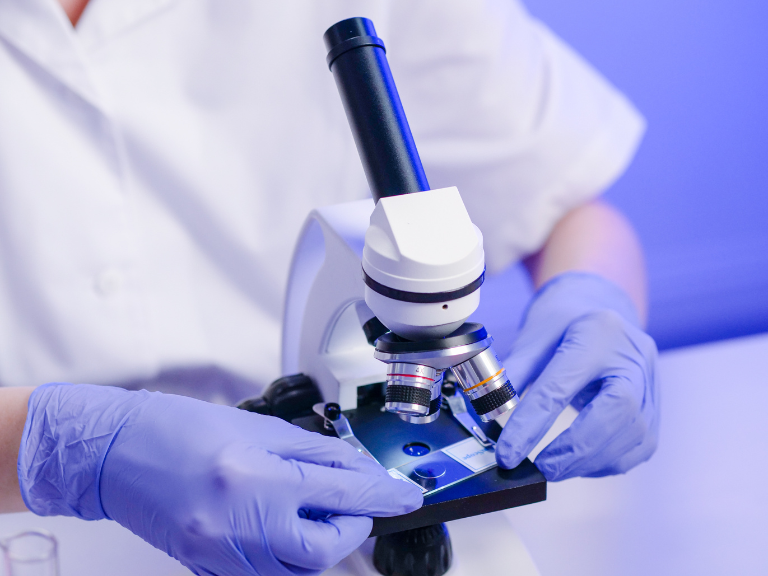The Sussex Cancer Fund is delighted to have offered a research grant to support a 3-year study into Acute Myeloid Leukaemia

Acute Myeloid Leukaemia (AML) is an aggressive blood cancer which has a poor prognosis and high relapse rate. There are around 3200 new cases of AML diagnosed in the UK every year and unfortunately, this figure is increasing, with a 30% increase from the 1990s. Of all leukaemias, this is the most aggressive with a 5year survival rate of just 20%, which drops to just 5% in patients over 65 years old.
What the study hopes to achieve
The research project hopes to discover and study differences between two types of cancer cells associated with this disease. Cancer cells are present in the blood, which are detected and destroyed by regular cancer treatments such as chemotherapy. However other cells ‘hide’ inside the bone marrow. This makes these cells difficult to find and the bone marrow also gives a degree of protection to the hidden cells which mean treatments are often not effective. These hidden cells stick to the bone marrow, this research project hopes to discover how this ‘glue’ works.
The Study potential
With a better understanding of the two types of cell, new novel ways of forcing these sticky cells out of hiding can be developed and lead to more effective treatments. This study will not only benefit AML patients but those suffering from other forms of cancer too, as this same hiding/sticking mechanism often forms part of the cancer metastases process.
Who is involved
The research will be carried out at Brighton and Sussex Medical School by Dr Eleni Ladikou. Eleni is a Clinical Research Fellow who will be doing this research project for her PhD under the supervision of Dr Andrea Pepper. She will be joining the ‘Pepper Research Team’ at BSMS with Dr Tim Chevassut as her clinical co-supervisor.
Eleni became interested in research and haematology while studying for her undergraduate degree where she worked on different types of leukaemia. Eleni enjoys the creativity that research brings and this led her to pursue an academic clinical career. Thankfully the NHS has an integrated and progressive academic clinical pathway which allows clinicians to progress in their clinical careers while doing research part-time.
Eleni began this pathway with two years in Leicester before moving to Brighton three years ago.
Eleni said “The SCF will allow us to gain a deeper understanding of the leukaemic cell anchorage to the bone marrow, which could revolutionize the treatment of AML as well as other leukaemias/cancers”
“The SCF will enable me to pursue my PhD in a supportive, inspiring environment, where I will learn from the best and get exposed to high-quality translational research”
The Sussex Cancer Fund is delighted to have been able to assist with this potentially life-saving research and wish Eleni the very best of luck. If you would like to help us support more projects like this please donate using the button below.

